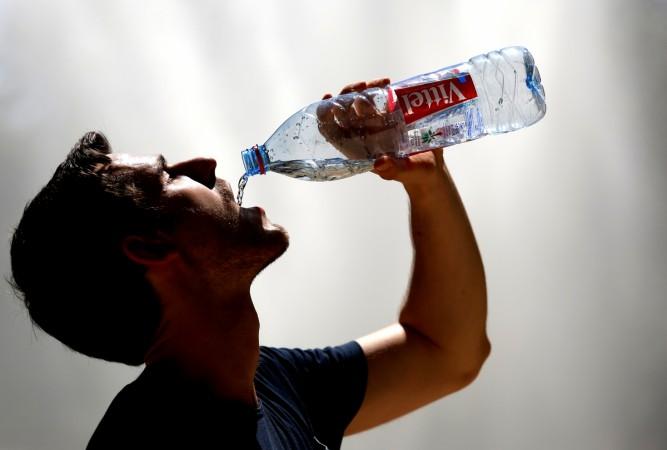
It is often said that drinking eight glasses of water is good for health. But a recent research conducted by Australian researchers from Monash University, Victoria, found that drinking surplus amounts of water can lead to water intoxication or hyponatremia.
It was found that consuming too much water prevents a body mechanism, which regulates fluid intake in the body.
Hyponatremia or water intoxication be defined as a condition, in which excessive depletion of sodium present in the blood takes place because of drinking too much water. The symptoms of a person suffering from Hyponatremia are: nausea, convulsions, lethargy and coma.
Consumption of fluids in large quantities leads to "swallowing inhibition," the study revealed. This makes the brain keep the volume of water in the body under control.
"If we just do what our body demands us to we'll probably get it right — just drink according to thirst rather than an elaborate schedule," IANS quoted Michael Farrell, associate professor at Monash University.
The researchers asked the partakers to reveal the amount of effort they had to put in for swallowing water when they were thirsty after working out and the effort they had to put while consuming extra water.
A functional magnetic resonance imaging (fMRI) was used to analyse the participants and it was observed that the prefrontal areas of the brain was more active when the partakers applied more effort to swallow the water.
The result revealed that there was three-fold hike in the effort when the participants were drinking excessive water in comparison to them drinking water when they are actually thirsty.
"We found effort-full swallowing after drinking excess water which meant they were having to overcome some sort of resistance, as the swallowing reflex becomes inhibited once enough water has been drunk," Farrell concluded.





!['It's not Mumbai traffic, it's air traffic': Suriya apologises to Mumbai media after paparazzi yelled At Him for making them wait for hours [Watch]](https://data1.ibtimes.co.in/en/full/806234/its-not-mumbai-traffic-its-air-traffic-suriya-apologises-mumbai-media-after-paparazzi.jpg?w=220&h=138)
![Bigg Boss 16-fame Sreejita De and Michael Blohm-Pape exchange wedding vows in dreamy Bengali ceremony [Inside Pics]](https://data1.ibtimes.co.in/en/full/806233/bigg-boss-16-fame-sreejita-de-michael-blohm-pape-exchange-wedding-vows-dreamy-bengali-ceremony.jpg?w=220&h=138)







